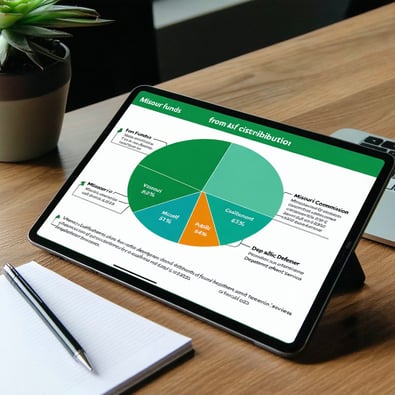The Missouri Department of Health and Senior Services (DHSS) has released its much-anticipated annual report on the state’s Cannabis Program, showcasing the significant strides made throughout the 2024 program year. Covering the period from December 1, 2023, to November 30, 2024, the report outlines progress in both the medical and adult-use cannabis sectors.
Missouri’s Cannabis Program has rapidly evolved since legalization, and this latest report confirms continued momentum and regulatory maturity. One of the key highlights of the year was the completion of the second round of microbusiness applications and licensing, which expanded access to cannabis business opportunities for underrepresented groups.
The Division of Cannabis Regulation, a branch of DHSS, also launched a post-licensure verification process to confirm that licenses were awarded to individuals who meet eligibility criteria. This added layer of oversight ensures the integrity of the Cannabis Program and helps build public trust in how licenses are distributed and enforced.
“We are committed to ensuring regulations protect the safety of patients, consumers, and the public without undue burden on licensees,” said Amy Moore, director of the Division of Cannabis Regulation. Her statement underscores the department’s ongoing efforts to strike a balance between public safety and industry growth within the Cannabis Program framework.
Another important development noted in the report is the launch of a licensee collaborative. This initiative brings together regulators and cannabis industry experts to discuss and address emerging issues within Missouri’s growing cannabis landscape. This collaborative model reflects the state's commitment to a transparent and responsive Cannabis Program that can adapt to industry innovations and public health needs.
The 2024 report also emphasizes the importance of stakeholder engagement and regulatory compliance. By fostering communication between state agencies and industry participants, Missouri’s Cannabis Program continues to serve as a model for responsible cannabis regulation.
The full report is now available on the DHSS website under the Cannabis Regulation section and offers in-depth data and analysis on licensing, inspections, and consumer protection efforts over the last year.
With a third round of microbusiness licenses expected in the coming year, the Cannabis Program is poised for continued expansion and refinement. Stakeholders across the state—including licensees, healthcare professionals, and consumers—will be watching closely as Missouri continues to build a balanced, effective cannabis regulatory system.
As the national conversation around cannabis policy evolves, Missouri’s Cannabis Program offers valuable lessons in structure, transparency, and stakeholder collaboration.





